
The mysterious murder of 'God's Banker'
 Getty Images
Getty ImagesForty-three years ago this week, the BBC reported on the death of Roberto Calvi, an Italian banker whose body was found in strange circumstances in the centre of London. His bank was linked to the Vatican, a masonic group and the Mafia – and his murder left many unanswered questions.
Roberto Calvi was the chairman of the prestigious Banco Ambrosiano, the largest private bank in Italy. He was so closely connected to the Roman Catholic Church that he was known as "God's Banker".
Warning: This article contains references to suicide and murder
But in June 1982, the 62-year-old Calvi went missing. And on the morning of 18 June, his body was discovered hanging beneath Blackfriars Bridge in London.
"Calvi was at the centre of an incredibly complex web of international fraud and intrigue," reported the BBC's Hugh Scully. "It involved the Italian banking world, the underworld, the Mafia, Freemasonry and, most startling of all, the Vatican." The banker's death would trigger a wide-ranging political and financial scandal in Italy. It would involve the disappearance of millions of dollars, and leave behind an enduring mystery.
WATCH 'Calvi's links to the Vatican were so close he was known as 'God's banker''.
Calvi had been missing for nine days before he was discovered hanging from scaffolding beneath the bridge. But it was the strange circumstances of his death that puzzled UK police. His pockets were stuffed with bricks, and with some £10,000 ($14,000) in cash in multiple currencies. He also had a fake passport bearing the name Gian Roberto Calvini. Despite this, the initial coroner's report in July 1982 found no evidence of foul play on his body, so ruled that the banker had taken his own life. But even at the time there was suspicion that something far darker was afoot.
The banker had shaved off his moustache to avoid being recognised before disguising his route out of Italy by going through other countries first"Calvi's last journey was hardly that of a man contemplating suicide," said Scully. "Indeed, he had made the most elaborate plans to get out of Italy secretly." The banker had shaved off his moustache to avoid being recognised before disguising his route out of Italy by going through other countries first and hiring a private plane to spirit him to London. "He had taken a one-month lease on a flat in Chelsea and then there was a false passport and an airline ticket," Scully continued. "Inside the passport was a current visa for Brazil and the airline ticket was for a one-way ticket to Rio de Janeiro. Why, you might ask, go to all those lengths simply to finish up on the end of a rope under Blackfriars Bridge?"
Calvi's was not the only unexpected death at Banco Ambrosiano. The day before his body was found, his personal secretary Teresa Corrocher had also apparently jumped to her death from the fourth floor of the bank's headquarters in Milan. She left behind a note condemning her boss, writing that he should be "twice cursed for the damage he caused to the bank and all its employees".
Calvi and his bank had operated in a murky world where finance, organised crime, politics and religion overlapped. Founded in 1896, Banco Ambrosiano had a long history with the Catholic Church – and the Institute for Religious Works (IOR), often known as the Vatican bank, had become its main shareholder. IOR holds the bank accounts of the Pope and the clergy, but it also manages the church's financial investments. Because the Vatican is its own country, Italian regulators have no control or oversight of the IOR.
Mafia connections"The Vatican is entirely free of exchange controls and other government regulations; secrecy is everything," said Scully. "The Vatican has to account to no one for its financial dealings, and enormous sums of money can be sent anywhere in the world without anyone knowing about it other than those directly involved."
Through his role as head of Banco Ambrosiano, Calvi had forged close ties with his opposite number in the IOR, its chairman Archbishop Paul Marcinkus. In turn, this American priest had financial connections and associates that raised eyebrows. "Best known of these was Michele Sindona, an international banker with mafia connections who is now serving a 25-year jail sentence for fraud in the US," said Scully. Sindona, who was known in banking circles as "the Shark", would later be transferred to prison in Italy where he would meet his own suspicious end in 1986, after drinking coffee laced with cyanide.
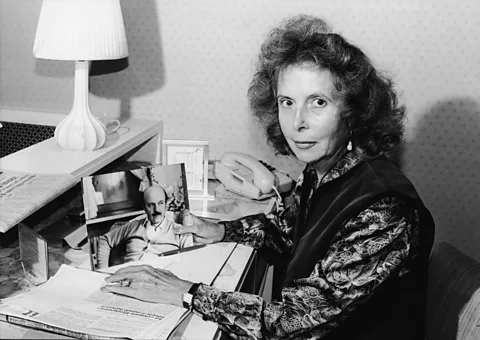 Getty ImagesRoberto Calvi's widow, Clara Calvi, hired private investigators and forensic experts to look into the banker's death (Credit: Getty Images)
Getty ImagesRoberto Calvi's widow, Clara Calvi, hired private investigators and forensic experts to look into the banker's death (Credit: Getty Images)Sindona had mentored Calvi in his banking career since the late 1960s, and they both belonged to a shadowy masonic lodge called Propaganda Two (P2). The masonic group was linked to extreme right-wing groups and was run by Italian multi-millionaire and avowed fascist Licio Gelli. It counted leading figures in the armed forces, politics, business and newspapers among its members. An Italian journalist, Count Paolo Filo della Torre, told the BBC in 1982 that while P2 was theoretically a masonic lodge, it "practically was something very much associated with [the] mafia and with all sorts of dirty dealings".
In History
In History is a series which uses the BBC's unique audio and video archive to explore historical events that still resonate today. Sign up to the accompanying weekly newsletter.
In March 1981, Italian police raided Gelli's offices and discovered in a safe a list of hundreds of alleged P2 members, including politicians, military officers and media tycoon and future prime minister Silvio Berlusconi. The revelation caused a political explosion. The Italian prime minister Arnaldo Forlani and his whole cabinet resigned, a police chief shot himself, and a former minister was rushed to hospital after taking an overdose.
The police raids also uncovered compromising documents that implicated Calvi in fraudulent practices and illegal offshore operations. By May 1981, the banker had been arrested and found guilty of currency violations. He was sentenced to four years in prison but was released on bail while pending appeal. Calvi used this as an opportunity to skip the country with a briefcase full of damning documents about Ambrosiano's activities. Within days of his arrival in London his bank had collapsed, leaving behind huge debts.
Missing billions"Before Roberto Calvi disappeared, Italian investigators discovered that $1.5bn was missing from his bank," said Scully. "It's now believed that this money was sent abroad through the Vatican bank which escapes Italian exchange controls. Some of that money was lent to South American countries at low interest rates as directed by the Catholic Church. The rest was put into ghost companies in Luxembourg and South America from where it was returned to Italy to buy shares for Calvi in the Banco Ambrosiano. By this method he was able to use bank funds to build up his own personal fortune."
AMarcinkus was also sought for questioning but was granted immunity as a Vatican employee, and he maintained his innocence of any wrongdoing. The Vatican never admitted any legal responsibility for Banco Ambrosiano's collapse, but in 1984 said it had a moral responsibility for the bankruptcy and made a voluntary contribution to the bank's creditors of $406 million.
More like this:
• The woman who inspired The Sopranos
• The bizarre siege behind Stockholm Syndrome
• Why The Godfather was a stark warning for the US
Investigators believed that the shell companies that Calvi had set up were being used to move money both to support secret political activities in other countries and to launder money for clients such as the mafia. "Police investigations of Calvi's affairs thus threaten many powerful people in Italy and some think provided a motive for his murder," said Scully.
Filo della Torre, who knew Calvi, told the BBC in 1982 that he believed the banker had been killed, and that his body being left under Blackfriars Bridge indicated masonic symbolism. He said that P2 members wore black robes to their meetings and referred to themselves as "frati neri", Italian for "black friars". When Scully said that this made Calvi death's sound "like something out of the Borgias", the Italian journalist replied: "I'm afraid it does very much. We are going back in [a] sort of Italian tradition."
Calvi's family also refused to accept the suicide ruling, which was overturned in 1983 when a second inquest delivered an open verdict on the death. But his family, including his widow, Clara Calvi, kept pushing for the police to investigate, hiring their own private investigators and forensic experts to look into the banker's death. After Calvi's body was exhumed in 1998, evidence mounted that he could not have killed himself. Forensic tests showed that injuries to his neck were inconsistent with death by hanging, and that Calvi's hands had never touched the bricks in the pockets of his clothes. In October 2002, Italian judges concluded that the banker had indeed been murdered.
An Italian police investigation was launched, and in October 2005, five people went on trial in Rome, charged with Calvi's murder. The prosecutor, Luca Tescaroli, argued that the banker had been murdered for stealing Mafia money which he was meant to launder, and that Calvi was planning to blackmail several other prominent people, including politicians.
In June 2007, after a 20-month trial, Sardinian financier Flavio Carboni, his former girlfriend Manuela Kleinszig, Roman entrepreneur Ernesto Diotallevi, Calvi's former driver bodyguard Silvano Vittor, and convicted Cosa Nostra treasurer Pippo Calo – who was serving two life sentences for unrelated Mafia crimes – were all acquitted of any involvement in Calvi's death. Speculation remains about who commissioned and ultimately carried out the killing of the Italian banker, but to date no one has been convicted.
--
For more stories and never-before-published radio scripts to your inbox, sign up to the In History newsletter, while The Essential List delivers a handpicked selection of features and insights twice a week.
For more Culture stories from the BBC, follow us on Facebook, X and Instagram.
In HistoryHistoryFeaturesWatch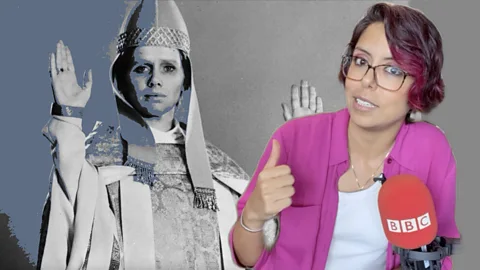 Pope Joan: the woman who fooled the church
Pope Joan: the woman who fooled the churchA woman who allegedly was the head of the Catholic Church became one of the most controversial Middle Ages tales.
7 May 2025History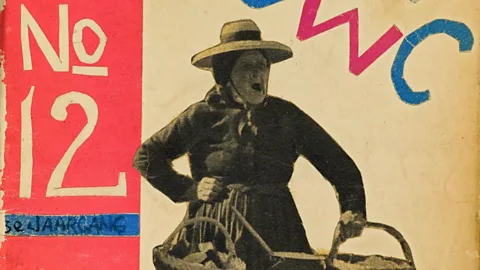 The secret WW2 magazine ridiculing Hitler's mother
The secret WW2 magazine ridiculing Hitler's motherHiding in an attic, Jewish man Curt Bloch found inspiration through crafting anti-Nazi parody.
6 May 2025History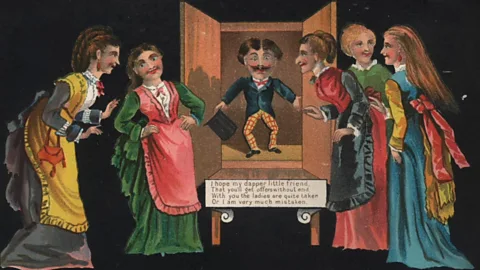 The insulting 'Vinegar Valentine' of Victorian England
The insulting 'Vinegar Valentine' of Victorian EnglandValentine’s Day is thought to celebrate romance but rude cards soured the holiday for its recipients.
14 Feb 2025History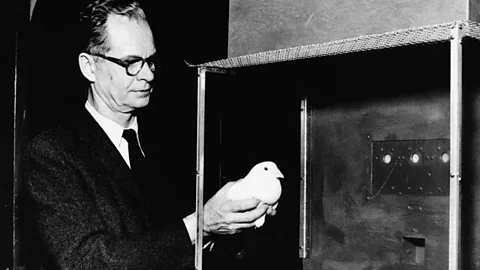 The WW2 experiment to make pigeon-guided missiles
The WW2 experiment to make pigeon-guided missilesAn unexpected WW2 experiment by behaviourist B F Skinner proved that pigeons could be used for missile guidance.
4 Feb 2025History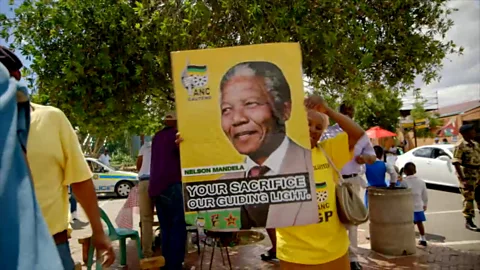 Idris Elba on moment he learned about Mandela's death
Idris Elba on moment he learned about Mandela's deathThe actor recalls being at the Mandela film premiere when he heard the anti-apartheid politician had died.
7 Dec 2024History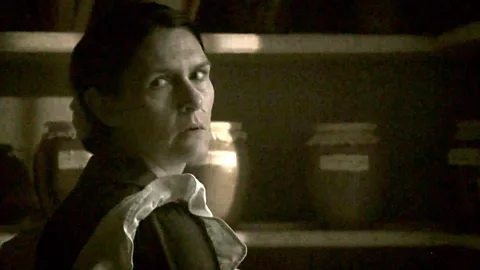 Mary Mallon: 'The most dangerous woman in America'
Mary Mallon: 'The most dangerous woman in America'How Mary Mallon, an Irish cook for New York's elite, became known as the 'most dangerous woman in America'.
17 Nov 2024History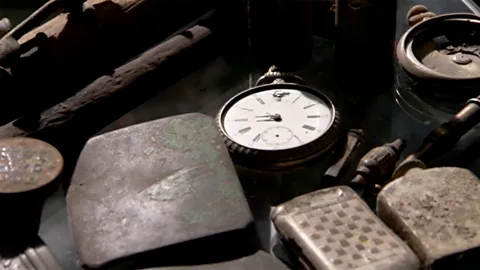 World War One relics live on in the fields of Europe
World War One relics live on in the fields of EuropeThe battlegrounds of World War One are still giving up their revealing evidence of bitter fighting.
12 Nov 2024History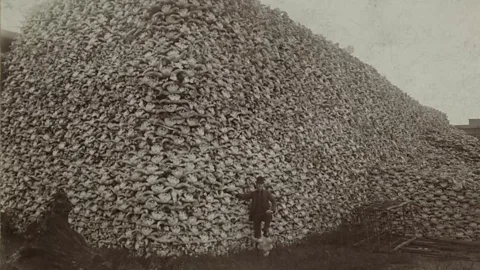 The picture that tells a lesser-known chapter of US history
The picture that tells a lesser-known chapter of US historyHow a 1892 photo from Rougeville, Michigan, became the most iconic image of the bison massacre in America.
22 Oct 2024History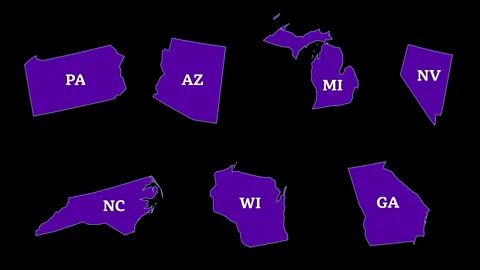 The history of swing states in the US
The history of swing states in the USThe US Presidential elections did not always depend on just these seven states.
21 Oct 2024History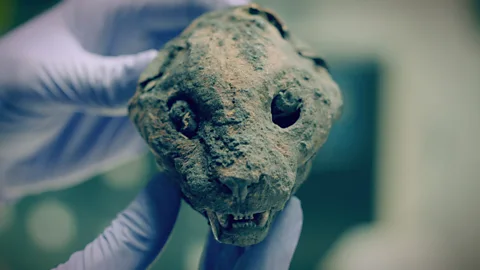 Why tonnes of mummified cats ended up in England
Why tonnes of mummified cats ended up in EnglandIn 1890 an estimated cargo of 180,000 ancient felines, weighing 19.5 tonnes, were auctioned off in Liverpool.
18 Sep 2024History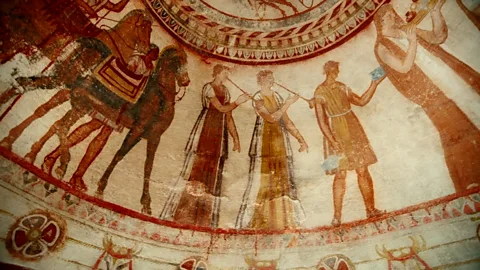 Inside the ancient royal tomb found by accident
Inside the ancient royal tomb found by accidentThe Thracian Tomb of Kazanlak was accidentally discovered by Bulgarian soldiers digging up shelters in 1944.
11 Sep 2024Archaeology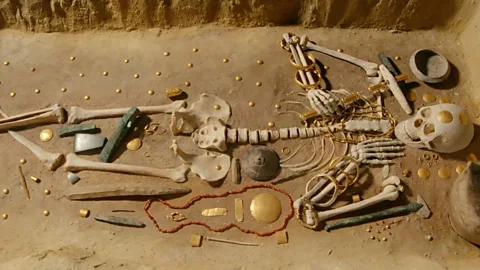 Varna Necropolis: World's oldest gold treasure
Varna Necropolis: World's oldest gold treasureThe Varna treasure is considered the world's oldest human processed gold, dating back 6,500 years.
10 Sep 2024Archaeology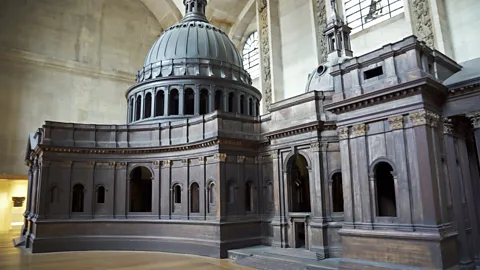 The giant 350-year-old model of St Paul's Cathedral
The giant 350-year-old model of St Paul's CathedralHiding in a London cathedral is an intricate wooden mock-up of Sir Christopher Wren's masterpiece.
5 Sep 2024History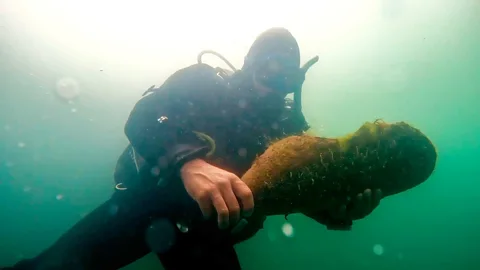 Uncovering the sunken relics of an ancient city
Uncovering the sunken relics of an ancient cityBettany Hughes goes underwater in search of ancient archaeological finds in historic Sozopol, Bulgaria.
4 Sep 2024Archaeology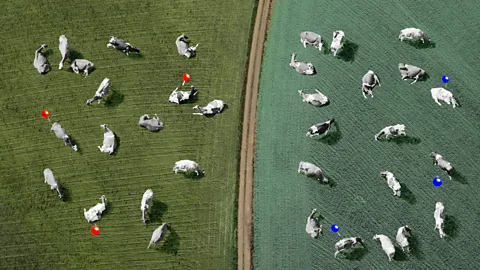 Texas fever: The lesser-known history of the US border
Texas fever: The lesser-known history of the US borderIn 1911, a fence was constructed on the US-Mexico border. But its purpose was not to stop humans.
18 Aug 2024History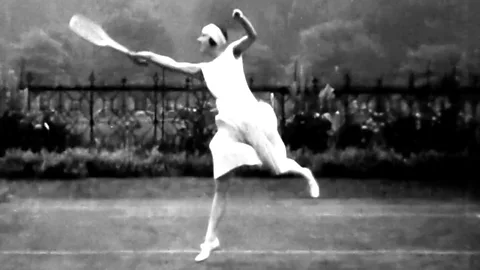 Century-old Olympics footage brought back to life
Century-old Olympics footage brought back to lifeA look through footage from the Paris 1924 Olympics gives viewers a chance to reflect on how much has changed.
9 Aug 2024Sport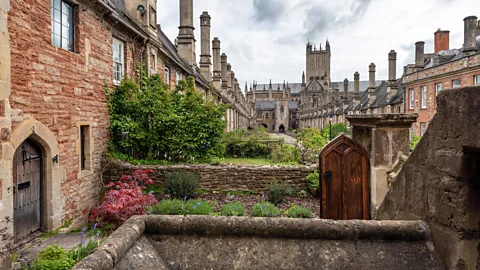 The rare medieval street about to reveal its secrets
The rare medieval street about to reveal its secretsOne of Europe's oldest residential streets hides in the heart of the English countryside.
23 Jul 2024History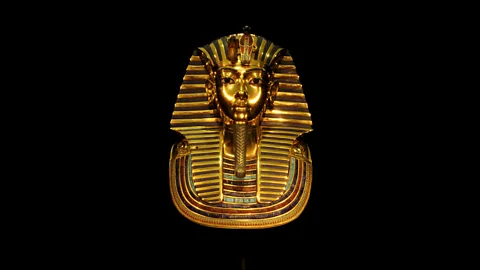 Tutankhamun: The first ever view inside the tomb
Tutankhamun: The first ever view inside the tombOne month after the famous discovery, photographer Harry Burton recreated the first view of Tutankhamun's tomb.
5 Jul 2024History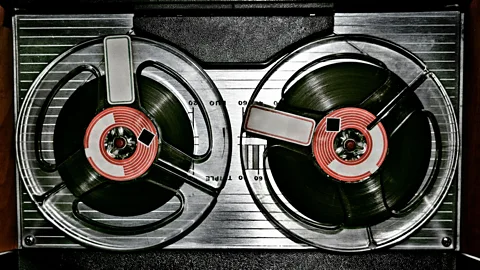 Listen to the oldest known recording of a human voice
Listen to the oldest known recording of a human voiceThomas Edison wasn't the first person to record sound. It was a Frenchman who invented sound recording in 1857.
3 Jul 2024History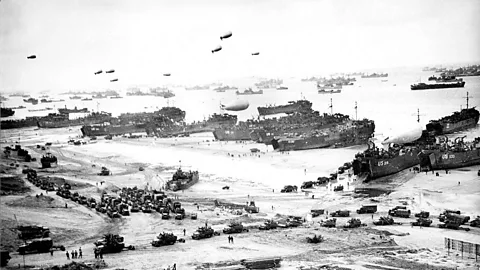 D-Day veteran remembers: We didn't have time to be scared
D-Day veteran remembers: We didn't have time to be scaredOn the 80th anniversary of D-Day, veterans who were on the beaches of Normandy recount that fateful day.
5 Jun 2024Historywindow._taboola = window._taboola || []; _taboola.push();More from the BBC42 mins ago The people who are 'allergic' to others
The people who are 'allergic' to othersSome people are allergic to others – but the mystery of how this works is only just starting to be unravelled.
42 mins agoFuture6 hrs ago Pilgrimage remembers women condemned as witches
Pilgrimage remembers women condemned as witches Ruth Dillon and Eleanor Dale will walk along the River Yare to Great Yarmouth in 17th-Century dress.
6 hrs agoNorfolk21 hrs ago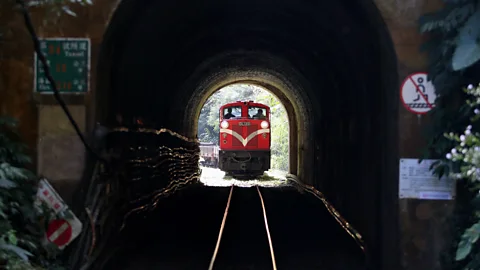 Taiwan's epic train ride through 50 tunnels
Taiwan's epic train ride through 50 tunnelsThe historic Alishan Forest Railway, once crippled by typhoons and earthquakes, is running again – and is redefining slow travel in Taiwan.
21 hrs agoTravel24 hrs ago The horses helping jailed US veterans
The horses helping jailed US veteransA new programme using a form of horse therapy is attempting to tackle the trauma that is thought to lie behind the high rates of arrest and imprisonment among US veterans.
24 hrs agoFuture1 day ago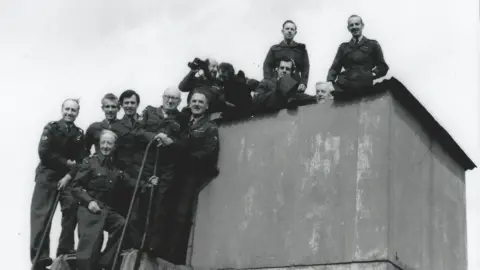 The Cold War bunker brought back to life
The Cold War bunker brought back to lifeThe site in Cuckfield is home to an underground bunker from 1925, once used by the Royal Observer Corps.
1 day agoSussexAP by OMG
Asian-Promotions.com |
Buy More, Pay Less | Anywhere in Asia
Shop Smarter on AP Today | FREE Product Samples, Latest
Discounts, Deals, Coupon Codes & Promotions | Direct Brand Updates every
second | Every Shopper’s Dream!
Asian-Promotions.com or AP lets you buy more and pay less
anywhere in Asia. Shop Smarter on AP Today. Sign-up for FREE Product Samples,
Latest Discounts, Deals, Coupon Codes & Promotions. With Direct Brand
Updates every second, AP is Every Shopper’s Dream come true! Stretch your
dollar now with AP. Start saving today!
Originally posted on: https://www.bbc.com/culture/article/20250611-the-mysterious-murder-of-gods-banker-roberto-calvi?ocid=global_culture_rss
